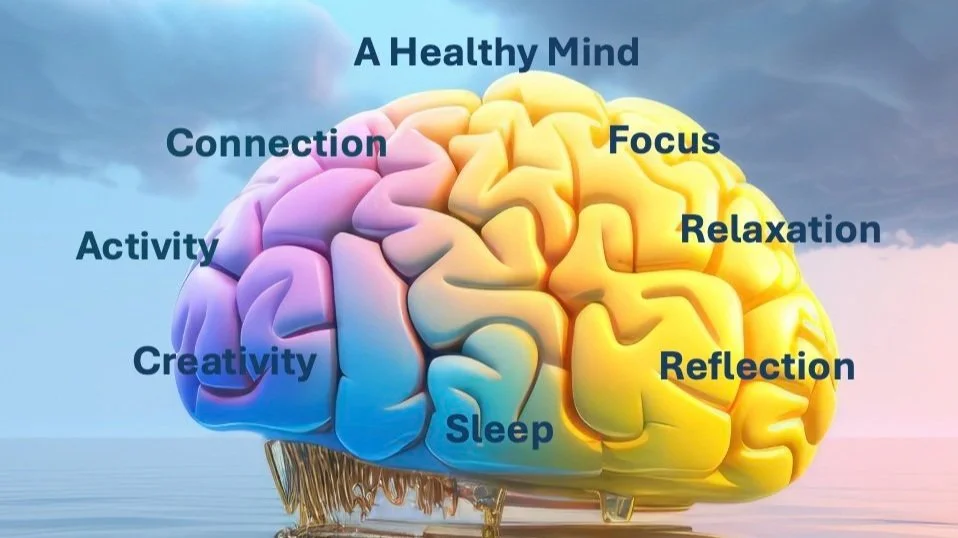How to maintain a Healthy Mind
In today's fast-paced world, mental health can often take a backseat to our busy schedules. However, prioritising mental wellbeing is crucial for maintaining balance and harmony in life. There are seven essential mental activities that help strengthen and sustain a healthy mind.
Let’s dive into each component and explore how they contribute to our mental wellbeing:
1. Connecting Time
Spending time connecting with others or nature activates your brain in meaningful ways. Whether you’re engaging with loved ones, meeting new people, or immersing yourself in nature, these interactions foster emotional connections that support brain health. Prioritize regular connecting time to reinforce feelings of belonging and happiness.
2. Physical Time
Moving your body has profound effects on mental health. Physical exercise not only keeps you fit but also enhances your mood and helps reduce stress and anxiety. Whether it’s a brisk walk, yoga session, or more intense activities, incorporating physical movement into your day releases endorphins and boosts your overall mood.
3. Play Time
Engaging in fun and creative activities stimulates the brain and fosters innovation. Whether it’s painting, writing, or simply playing a game, allowing yourself to be creative and playful helps your brain form new connections and reduces mental fatigue. Play time is essential for nurturing a lighthearted and stress-free mindset.
4. Focus Time
Deliberate focus on tasks, goals, or challenges strengthens deep connections in the brain. When you concentrate on something meaningful—whether at work or during personal projects—your brain becomes more efficient at problem-solving and retaining information. It’s important to carve out time in your day for uninterrupted focus to keep your mind sharp and active.
5. Down Time
Giving your brain a break is just as important as keeping it active. When you allow yourself to relax or let your mind wander, you create space for mental recovery. Down time—whether through meditation, deep breathing, or simply resting—gives your brain a chance to recharge, which is essential for long-term mental health.
6. Reflection Time
Taking time to reflect on thoughts, feelings, and sensations helps the brain integrate new experiences and regulate emotions. Reflection time could involve journaling, meditation, or simply sitting in silence to process the day. This quiet self-awareness allows for emotional growth and greater self-understanding.
7. Sleep Time
Quality sleep is crucial for mental health as it allows the brain to consolidate new information and recharge. During sleep, the brain processes memories and rejuvenates, preparing you to tackle the next day. Consistent, restful sleep is one of the most powerful ways to maintain cognitive health and emotional resilience.
Conclusion:
By incorporating these seven activities into your daily routine, you can cultivate a healthier, more balanced mental state. Whether you need more physical activity, creative play, or reflective downtime, a healthy mind is paramount improving overall wellbeing. So, the next time you're feeling overwhelmed, consider which part of your mental platter may need a little more attention.

